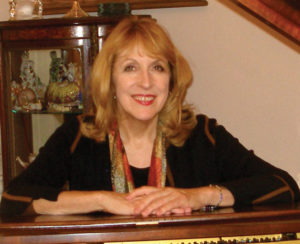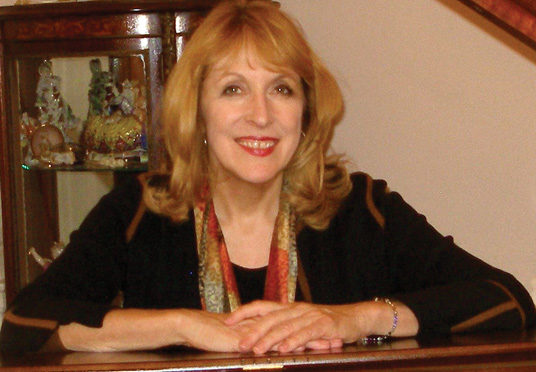Krista Seddon of Local 92 (Buffalo, NY) is a pianist and composer whose modern arrangement of Johannes Brahms’ “Lullaby” was selected for Buffalo’s new John R. Oishei Children’s Hospital, which opened in November. The hospital launched a contest for a new rendition of the old masterpiece, which is heard each time a baby is born. Her arrangement has a distinctively jazzy feel. “My objective was to take something so pure and beautiful as the Brahms’ ‘Lullaby,’ and respecting it fully, bring it into the 21st century,” she says. “It was a challenge.”

Krista Seddon’s arrangement of Johannes Brahms’ “Lullaby” was selected as the official recording for the maternity floor at Buffalo’s new Oishei Children’s Hospital. She is a member of Local 92 (Buffalo, NY).
A classically trained pianist with degrees from The New England Conservatory and the University of North Texas, Seddon has had a long affiliation with the Buffalo Philharmonic that includes recordings and solo performances. The Director of Ensembles at the historic Trinity Episcopal Church of Buffalo, Seddon regularly conducts dual lecture performances at schools and universities. In addition, she often collaborates with Alan Broadbent and Robert Nowak, members of Local 802 (New York City), and previously, she transcribed works for the late jazz pianist Marian McPartland.
Next year, in honor of what would have been McPartland’s 100th birthday, Seddon plans a tribute lecture tour performing McPartland’s signature portraits of artists and discussing their 10-year collaboration. Seddon’s work with McPartland included transcribing the portaits.
“I’ve always believed in totality, a universality of music. It’s a good thing for musicians to be able to improvise—and there are different ways to go about it, not only through standards, but through composing. That is Marian’s influence on me,” she says.
“Jazz is the thing that encouraged me to compose,” Seddon says, “It doesn’t have to be large scale or follow strict rules. In jazz, we’re composing more to improvise.” In her own music portrait series, Seddon takes the audiences on a journey into the lives and work of the world’s major composers, exploring the connections between classical music and jazz.
Great jazz musicians—McPartland, Dave Brubeck, Bill Evans, and Duke Ellington—drew heavily on classical music, she says. “Historically, in classical and Baroque—they all improvised, especially in the Baroque era. Improvisation was required, if you were to be considered a musician of any kind.”
Ideally, Seddon says, jazz techniques to support classical players could be taught and incorporated into university music departments. “I use jazz extensively,” she says. “For example, taking a big classical composition and making it into a lead sheet with just melody and chords. Instead of 20 pages of complicated music, you can boil it down to its essence. It’s the difference between reciting and telling a story.”
The strict theoretical confines of classical music restrict improvisation. She says, “I like to decode that for people, especially for classical musicians because we have so much in our toolbox. It’s a natural progression—to grow out of the classical training and take it to other places.”
There are other benefits to learning improvisation skills. Seddon explains, “If during a classical performance, a musician gets off track somehow, instead of crashing and burning, with some improvisation techniques, there is space to find your way back. Jazz teaches us to get real with the music.”
“Classical musicians tell me, ‘I wish I could improvise. Would you teach me?’ Music of the day should be flexible, improvised over, and shared with people. It’s how I live my life. I hope to teach that and bring it to a wider audience,” she says.
Seddon is in process of recording a CD of mainly original compositions.
How do you connect with your community? Is there a cause that you support? Tell us about it. Please write to International Musician managing editor at: cyurco@sfm.org


